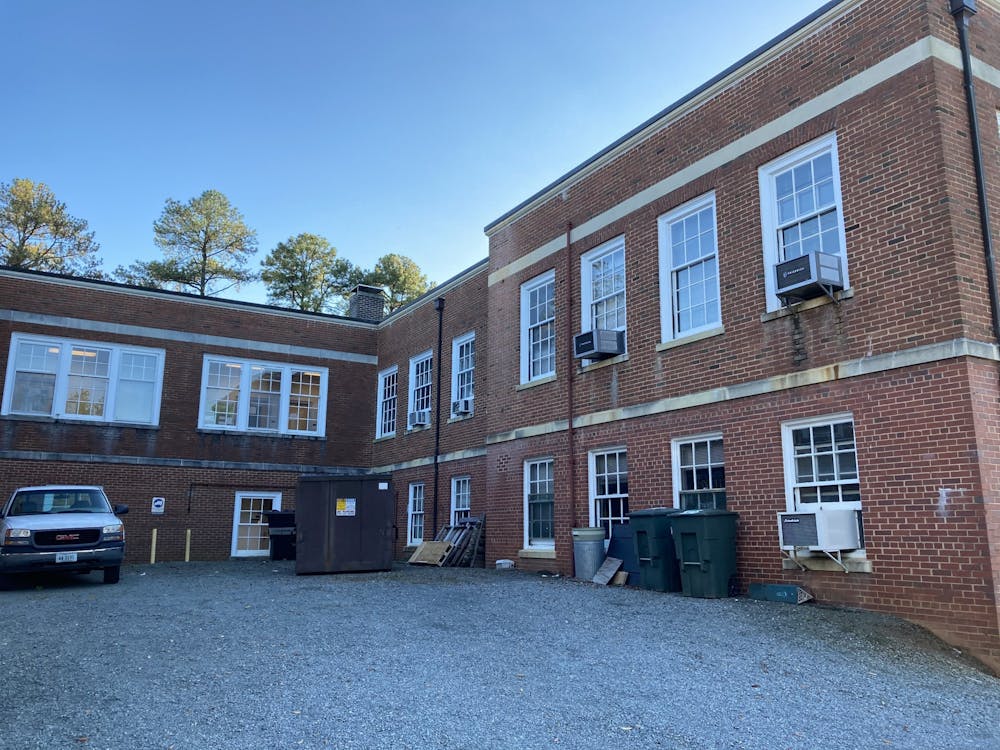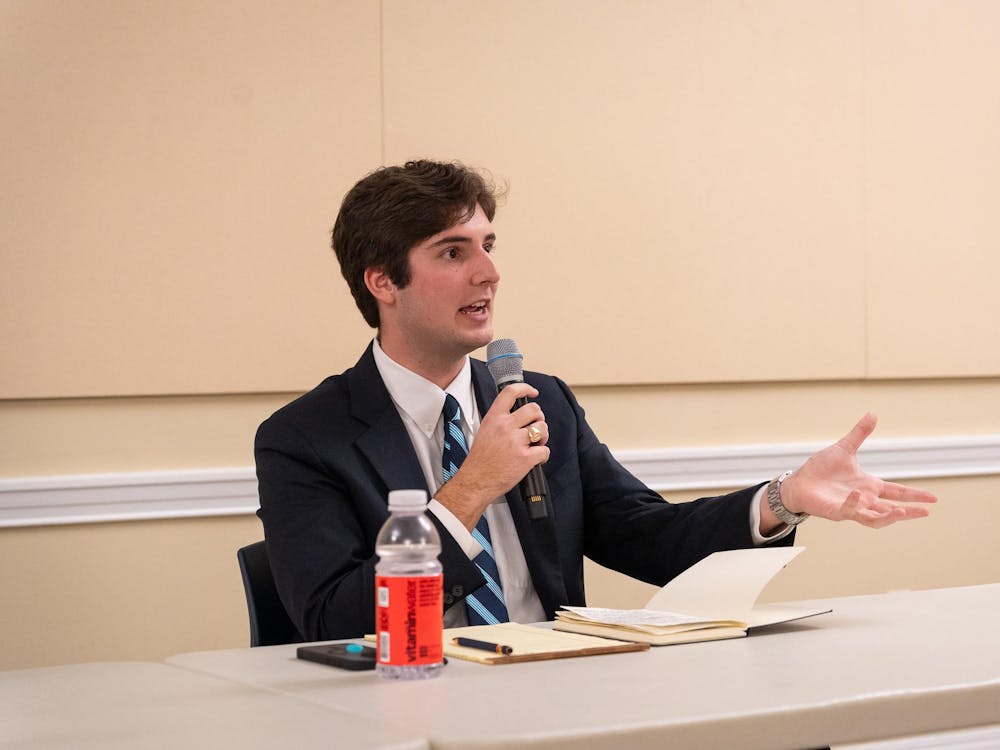Lea en español
During the fall 2020 semester, University trash accumulation has decreased to an unusual low.
Despite COVID-19 protocols for the daily use of disposable masks, to-go containers and cleaning supplies, the University is producing half as much trash as it did during the fall 2019 semester. However, increases in individual student consumption and the current low population of students and faculty on Grounds suggest that accumulation numbers may spike once the University returns to a state of normalcy. Recycling and trash collection personnel continue to minimize the waste footprint by prioritizing safety and following the Centers for Disease Control and Prevention guidelines.
In December 2019, the University developed a sustainability resolution coined the 30 by 30 plan. The idea is to achieve a 70 percent reduction in landfill tonnage by 2030, from 5,000 tons to about 2,000 tons. As a prominent voice in developing the sustainability resolution, University Director of Operations, Cheryl Gomez, says that the goal will be very difficult to achieve. The daily influx of disposed material from University construction, food plans and even Amazon deliveries requires a stringent upkeep in waste management.
However, the development of COVID-19 threw the University for a loop.
“For calendar year 2020, we are going to look like we did amazing on our goals,” Gomez said.
With residential facilities only about two-thirds occupied, waste has decreased significantly. However, Gomez cites the limits on football game attendance and lack of large events as what has really impacted waste reduction.
As an institution that provides housing and employment, the University has experienced changes in trash accumulation at both ends of the spectrum. While increases in telecommuting and Zoom-hosted meetings have limited trash production in business operations, for some students, the dormitory lifestyle denotes a larger output of waste.
Dhruv Rungta, first-year College student and Echols first-year liaison, lives on Grounds in the Balz-Dobie dormitory. In spending most of his time taking online courses from his dorm, Rungta can attest that his stationary experience has changed his outlook on trash consumption. Most of Rungta’s trash comes from meals. He usually eats the University dining hall food from a to-go container in his dorm and throws away the container and any food scraps.
Despite recycling at home, Rungta says that the dormitory lifestyle does not provide many options for waste management and sorting. Although the cafeteria to-go boxes are compostable, the dorm offers no compost options. When placed in the Courtenay on-Grounds isolation housing, Rungta recalls that his only choice was to request a trash pickup.
“There is zero recycling as an option … but leaving 15 bags to be thrown away every single day … just wasn’t ideal,” Rungta said.
The University has recognized the challenges to waste management posed by COVID-19 on a broader scale. One area of concern is the lack of resources to ensure that compostable materials are composted.
“To-go containers are almost 100 percent compostable,” Gomez said. “What we don't have are the resources, meaning our business partner, that would take the materials … to be composted.”
Yet, the University is working hard to reduce waste in the face of adversity. When the University closed last spring in compliance with President Jim Ryan’s precautionary orders, a skeleton recycling staff was still present twice a week to collect confidential materials that could not be disposed of in the landfills. The team has now resumed separating plastics, metals and paper products by hand.
Efforts to strategically position waste can units around campus aim to give students and faculty more immediate choice regarding waste disposal. The multicolored units each have one can for recycling cardboard and paper, one for recycling plastics, metals and glass and one for the landfill. The University also continues to encourage reuse. Despite COVID-19, the Reusable Office Supply Exchange Program is still operational on a sign-up basis that can be found on the University Recycling Services webpage.
According to the National Institutes of Health, COVID-19 can survive up to 24 hours on cardboard and two to three days on plastics and stainless steel. However, the recycling team is primarily concerned with COVID-19 host-to-host transmission. To counteract these risks, recycling personnel have been provided personal protective equipment, such as eye goggles and gloves, along with frequent COVD-19 testing. The team has also been functioning with reduced employee numbers. University Recycling Program Superintendent Sonny Beale said that the program aims to secure the safety of the recycling employees and their families.
“Our team is pretty dedicated to what we do here,” Beale said. “There is concern [for contracting COVID-19], but it’s not something that has caused people to want to quit … All of our team feels very strongly … that there are better places to put items than thrown in the landfill.”
There have not been any recorded cases of COVID-19 among the recycling program personnel.
For now, the University must still cope with the risks and challenges that COVID-19 has presented to trash accumulation and recycling goals.
“We’ve learned a lot about the virus,” Gomez said. “We learned how we can work safely and learn safely, too. We learned to live with it.”







